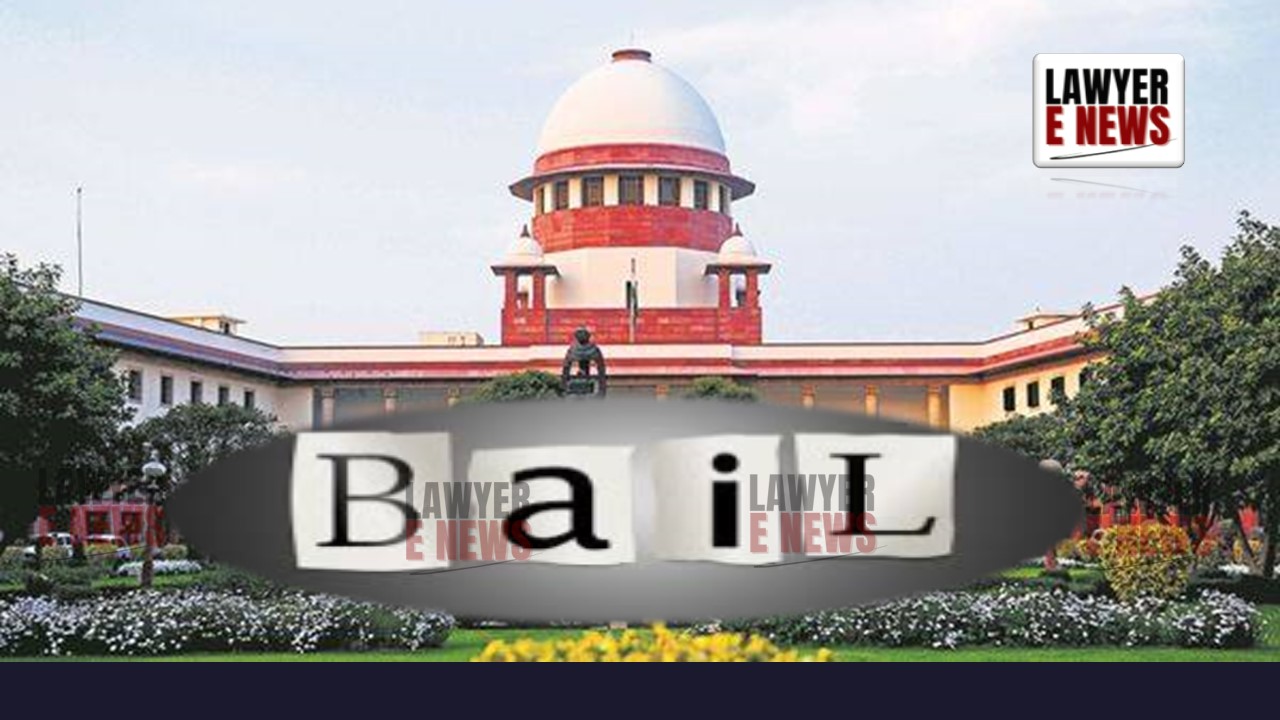-
by Admin
15 February 2026 5:35 AM



Bombay High Court’s decision allowing anticipatory bail application for an accused already in judicial custody upheld by the Supreme Court. In a significant ruling, the Supreme Court of India affirmed that anticipatory bail applications under Section 438 of the CrPC are maintainable even when the accused is already in judicial custody for another offence. The judgment, delivered on September 9, 2024, settles a long-standing divergence in judicial opinion on the subject. The ruling came in response to an appeal against the Bombay High Court’s order in favor of Amar S. Mulchandani, who was in custody for a separate offence but feared arrest in a different case.
Amar S. Mulchandani, the respondent, was arrested in connection with an Enforcement Case Information Report (ECIR No. 10 of 2021). While in custody for this case, he apprehended arrest in another case, Crime Report (CR No. 806 of 2019), registered with Pimpri Police Station, for offences including cheating and forgery under Sections 406, 409, 420, 465, 467, and others of the Indian Penal Code. He applied for anticipatory bail in relation to the 2019 case. The appellant, Dhanraj Aswani, objected to the maintainability of this bail application, arguing that Mulchandani could not apply for anticipatory bail while already in custody for another offence. The Bombay High Court overruled these objections, leading to this appeal before the Supreme Court.
The Supreme Court rejected the appellant’s contention that anticipatory bail cannot be granted when an accused is in custody for a different offence. "There is no express or implied restriction in the CrPC or in any other statute that prohibits the Court of Session or the High Court from entertaining and deciding an anticipatory bail application in relation to an offence while the applicant is in custody in relation to a different offence," the Court observed.
The Court further explained that an accused’s right to personal liberty under Article 21 of the Constitution of India includes the right to seek anticipatory bail, irrespective of the fact that he is in custody for a different offence. This view was supported by the jurisprudence developed in cases like Gurbaksh Singh Sibbia and Sushila Aggarwal, which emphasize the broad application of Section 438 CrPC.
The Court acknowledged the differing views of various High Courts on this issue, with courts such as Rajasthan and Delhi holding that anticipatory bail is not maintainable if the accused is in custody. However, it preferred the view taken by the Bombay and Orissa High Courts, which held that such an application is maintainable.
The judgment clarified that anticipatory bail operates prospectively. That is, if granted, it becomes effective only if the accused is released from custody and is about to be arrested in the new case. Therefore, there is no contradiction in allowing an accused in custody for one offence to apply for anticipatory bail in relation to another.
“The right of an accused to protect his personal liberty within the contours of Article 21 of the Constitution of India with the aid of the provision of anticipatory bail as enshrined under Section 438 of the CrPC cannot be defeated or thwarted without a valid procedure established by law,” the Court stated.
The bench further remarked, “Custody in one case does not have the effect of taking away the apprehension of arrest in a different case”.
By dismissing the appeal, the Supreme Court has reaffirmed the wide applicability of anticipatory bail under Section 438 of the CrPC, even when the accused is already in custody for another offence. This ruling has significant implications for the interpretation of personal liberty rights under the Constitution, ensuring that the anticipatory bail provision remains a robust safeguard against arbitrary arrests. The Bombay High Court has been directed to decide Mulchandani’s anticipatory bail application on its merits.
Date of Decision: September 9, 2024.
Dhanraj Aswani v. Amar S. Mulchandani & Anr., Criminal Appeal No. 2501 of 2024.
